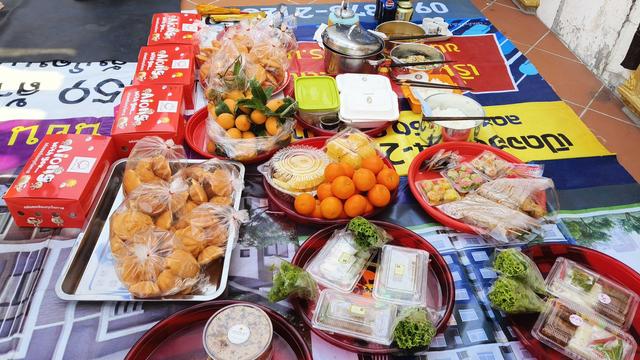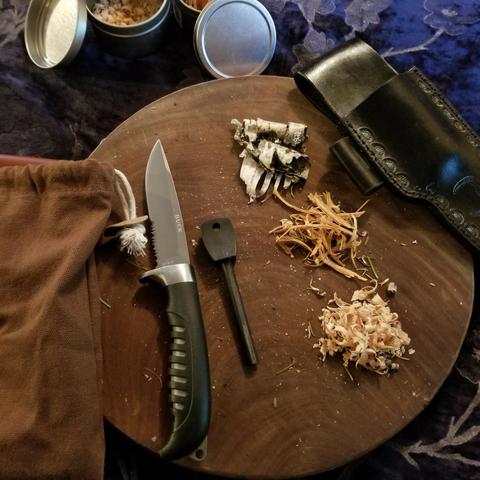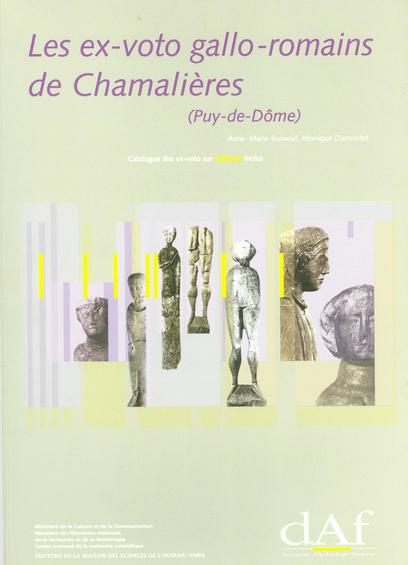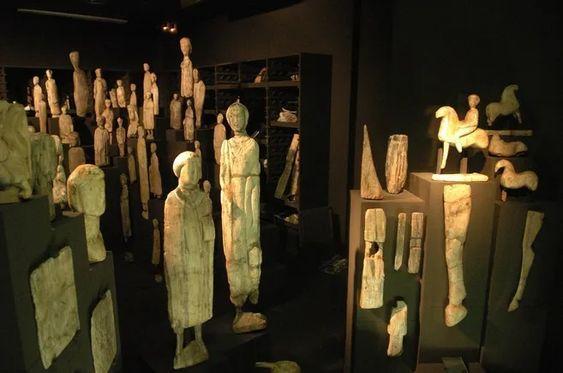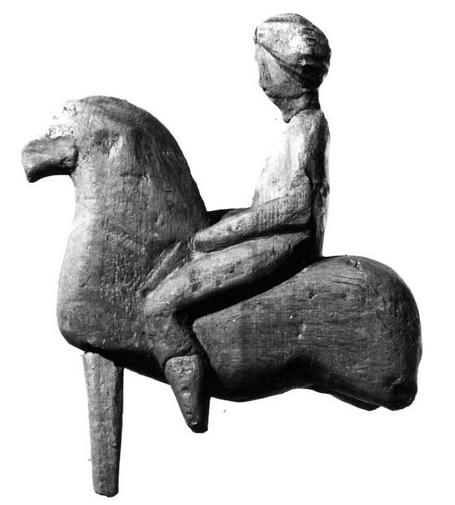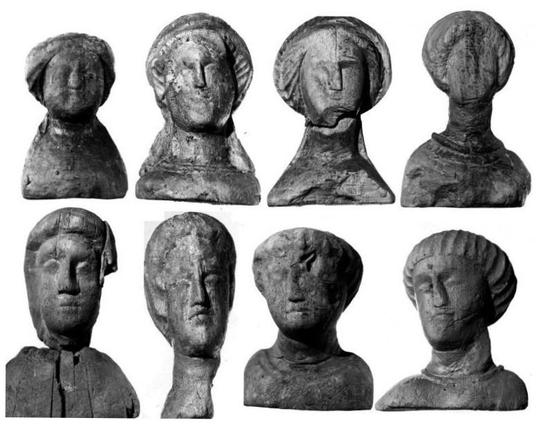WDAM 7′s weekend sports offerings include NBA playoffs, NOLA Gold rugby https://www.rawchili.com/nba/79819/ #;GulfCoastSports&Entertainment; #ABC #Basketball #NBA #NBAPlayoffs #NBC #offerings #Sports #WDAM7 #weekend
#Offerings
Tech Support Service Offerings Your Company Should Take Advantage Of https://visualmodo.com/tech-support-service-offerings-your-company-should-take-advantage-of/ 💡🚀🧑💻 #Support #Service #Offerings #Advantage
BSE Global expands media offerings with new publisher, another part of ‘destination’ https://www.rawchili.com/nba/33988/ #another #Basketball #Brooklyn #BrooklynNets #BrooklynNets #bse #destination #expands #FrontPage #global #media #NBA #Nets #NetsNews #netsdaily #new #of #offerings #part #publisher #with
Finding God’s Steadfastness in the Pause, Overflowing in Generosity
1,202 words, 6 minutes read time
Have you ever felt suspended in a moment, waiting for what seems like an eternity? Whether it’s for an answer to a heartfelt prayer, the healing of a loved one, or simply the unfolding of your next step, the experience of waiting can often feel challenging, even disheartening. In these in-between times, it’s easy to question God’s presence and wonder if He has forgotten us. Yet, within these very moments of pause, lies a profound opportunity to encounter the steadfast faithfulness of our Creator. And as we learn to trust Him in the quiet, a beautiful response blossoms within us: a desire to reflect His generous heart through our own giving.
Scripture:
“The Lord is good to those who wait for him, to the soul who seeks him.” (Lamentations 3:25, ESV)
“You will be enriched in every way to be generous in every way, which through us will produce thanksgiving to God.” (2 Corinthians 9:11, ESV)
Reflection/Teaching:
The scriptures are filled with stories of individuals and entire nations who experienced significant periods of waiting. Abraham patiently awaited the promised heir, his faith tested through decades of longing (Genesis 15-21). The people of Israel cried out for deliverance from slavery in Egypt, their cries eventually met with God’s mighty hand (Exodus). David, anointed as king, endured years of running and hiding before ascending his rightful throne (1 Samuel). Even in the New Testament, Simeon and Anna, with hearts fixed on God’s promise, waited faithfully for the arrival of the Messiah (Luke 2). These accounts remind us that waiting is not foreign to God’s plan; in fact, it often plays a crucial role in the unfolding of His purposes.
During these seasons of waiting, God is not inactive. As many insightful resources like those from Desiring God and Cru point out, these times can be profound opportunities for spiritual growth and a deepening of our reliance on Him. It is in the quiet moments that our character is refined, our understanding of God’s sovereignty expands, and our faith is tested and strengthened. We learn that His timing is not our timing, and His ways are often beyond our comprehension. Yet, His promises remain true, and His faithfulness endures through every delay.
Parallel to this experience of waiting is the transformative power of generosity. Our God is the ultimate giver, showering us with blessings beyond measure (John 3:16). As followers of Christ, we are called to reflect this divine attribute in our own lives. The Apostle Paul, in his letter to the Corinthians, encourages us to give not out of obligation but from a heart that is willing and cheerful (2 Corinthians 9:7). This act of giving, whether it involves our finances, our time, or our talents, is not merely a transaction; it is an act of worship and an acknowledgment of God’s provision in our lives.
The beauty lies in the interconnectedness of these two themes. When we are actively trusting God in our waiting, a spirit of generosity often arises within us. Instead of being consumed by our own needs and desires, we begin to see the needs around us. Giving becomes an expression of our faith – a tangible demonstration that we trust God to provide, even as we pour out what we have to bless others. As organizations like World Vision and Compassion International highlight, our generosity has the power to meet practical needs and to be a powerful testament to God’s love in the world. By focusing outward in generosity, we can find a deeper sense of purpose and even a measure of joy amidst our own seasons of waiting.
Application:
Consider the areas in your life where you are currently in a season of waiting. Instead of allowing anxiety or doubt to take root, actively choose to anchor yourself in the promises of God. Spend time in prayer and in His Word, reminding yourself of His past faithfulness. Simultaneously, look for opportunities to extend generosity to those around you. Perhaps it’s a financial gift to a ministry you believe in, volunteering your time to a cause close to your heart, or simply offering a word of encouragement to someone in need. Let your acts of giving be a living testament to your trust in God’s provision and a reflection of His generous spirit.
Prayer:
Heavenly Father, we thank You for Your unwavering faithfulness that sustains us through every season, especially in times of waiting. Forgive us for the moments when doubt creeps in and we lose sight of Your steadfast love. Strengthen our hearts to trust in Your perfect timing and grant us the courage to wait with hope and expectation. Lord, we also ask for a generous spirit, that we may freely and joyfully give as You have so abundantly given to us. Open our eyes to the needs around us and equip us to be Your hands and feet in a world that longs for Your love. May our waiting be marked by a deepening trust in You, and our lives be characterized by a generous outpouring of Your grace. Amen.
Closing Thoughts or Call to Action:
Remember, dear friend, that the pause is not a period of abandonment but an opportunity for God’s power to be revealed in your life. As you wait with expectant faith, allow the wellspring of God’s generosity to overflow through you. Embrace the joy of giving, knowing that in doing so, you are not only blessing others but also deepening your own connection with the heart of God.
Stay Connected and Grow in Faith!
Would you like to receive more devotionals like this, along with inspiring stories and practical ways to deepen your walk with God? Subscribe to our newsletter today and join a community of believers seeking to live out their faith with intention and joy. Sign up now and let us walk this journey together!
D. Bryan King
Sources
- Genesis 15-21 (Abraham waiting for Isaac)
- Exodus (Israel waiting for deliverance)
- 1 Samuel (David waiting to become king)
- Luke 2 (Simeon and Anna waiting for the Messiah)
- John 3:16 (God’s ultimate generosity)
- Malachi 3:10 (Tithing and God’s blessing)
- 2 Corinthians 9:6-8 (Cheerful giving)
- Piper, John. “God’s Faithfulness in the Waiting.” Desiring God.
- “Waiting on God.” Cru.
- Graham, Billy. “The Importance of Waiting on God.” Billy Graham Evangelistic Association.
- “Learning to Wait on God.” Focus on the Family.
- Sproul, R.C. “God’s Faithfulness.” Ligonier Ministries.
- преодолеть. “5 Things to Remember When You’re Waiting on God.” Crossway.
- “The Practice of Generosity.” Bible.com Reading Plan.
- “Why Generosity?” Generosity.org.
- “The Spiritual Benefits of Giving.” Compassion International.
- “What the Bible Says About Giving.” World Vision.
- Greear, J.D. “The Theology of Generosity.” Seedbed.
- решение. “What Does the Bible Really Say About Tithing?” RELEVANT Magazine.
- “Bible Verses About Waiting on God.” Bible Study Tools.
- “Bible Verses About Giving.” Bible Study Tools.
- “What does it mean to wait on the Lord?” GotQuestions.org.
- “What does the Bible say about giving?” GotQuestions.org.
Disclaimer:
The views and opinions expressed in this post are solely those of the author. The information provided is based on personal research, experience, and understanding of the subject matter at the time of writing. Readers should consult relevant experts or authorities for specific guidance related to their unique situations.
Related Posts
- Discover the Life-Changing Joy of Generosity: How Giving Blesses You Back! Date May 3, 2025
- The Multifaceted Nature of Greed: A Christian Examination Through the Teachings of Jesus Date February 16, 2025
- What the Early Church Can Teach Us Today: Lessons for Modern Believers Date March 23, 2025
#2Corinthians97 #activeWaiting #BibleStudy #biblicalGiving #biblicalPrinciplesOfGenerosity #blessingsOfGenerosity #blessingsOfGivingBack #characterDevelopment #cheerfulGiver #ChristianDevotional #ChristianInspiration #ChristianLiving #dailyDevotion #dailyEncouragement #examplesOfWaitingInTheBible #expressingFaith #faithAndGenerosity #faithInWaiting #faithJourney #faithfulGod #findingPurposeInWaiting #findingStrengthInWaiting #generosityAsWorship #generosityInFaith #generousLiving #giveCheerfully #givingAndReceiving #GodSFaithfulness #GodSPromises #GodSProvision #GodSUnwaveringLove #hopeInWaiting #impactOfGiving #John316 #joyOfGiving #Lamentations325 #learningToWait #livingGenerously #Malachi310 #meetingNeeds #offerings #overcomingDoubt #patienceInWaiting #Psalm2714 #sacrificialGiving #seasonsOfWaiting #spiritualDependence #spiritualDisciplines #SpiritualGrowth #supportingMinistry #theHeartOfGenerosity #thePowerOfGiving #tithing #trustAndObey #trustInGod #TrustingGodSTiming #trustingInHisPlan #waitingOnGod #waitingWithHope
https://www.alojapan.com/1259974/japan-weighs-revamping-auto-tax-as-luxury-ev-offerings-expand/ Japan weighs revamping auto tax as luxury EV offerings expand #autó #EV #expand #Japan #JapanNews #JapanTopics #luxury #news #offerings #revamping #tax #weighs TOKYO — The Japanese government is starting to explore revisions to the automobile tax, aiming to make it more fair as luxury electric vehicles proliferate and bear little of the burden. Forty-four of the EV models sold in fiscal 2024 were priced at 10 million yen (about $70,000) or hi…
people offer me things
Largesse
Jane Zwart
#Poetry #JaneZwart #MidwayJournal #Largesse #Giving #Offerings #Acceptance
https://www.alojapan.com/1231638/japans-insurers-beef-up-offerings-to-minimize-food-loss/ Japan’s insurers beef up offerings to minimize food loss #beef #food #insurers #Japan #JapanNews #JapanTopics #Japans #Loss #minimize #news #offerings TOKYO — Japanese nonlife insurers are expanding their products and services to help reduce food loss as concerns grow regarding food waste in the country. In the coming months, Mitsui Sumitomo Insurance and Aioi Nissay Dowa Insurance are each set to launch plans to cover the costs of rese…
“Prone to Wander…”: Forsaking the Way
Psalm 91:1-2 They who dwell in the shelter of the Most High, abide under the shadow of the Almighty. They shall say to Abba God, “You are my refuge and my stronghold, my God in whom I put my trust.”
Introduction
One of my most favorite hymns is, “Come Thou Fount” (a hymn that shows up in our current season of music. Of the three verses, the third is my absolute favorite.
O to grace how great a debtor
daily I’m constrained to be!
Let that grace now, like a fetter,
bind my wandering heart to thee.
Prone to wander, Lord, I feel it,
prone to leave the God I love;
here’s my heart; O take and seal it;
seal it for thy courts above.[1]
As I mentioned on the evening of Ash Wednesday, the prophet Joel brings us to the brink and asks us to take a deep, long, hard look in the mirror. The reality is, while we may not think about it often, we are prone to wonder from God. If it helps, please know that I am all too aware of my tendency to want to wander from God, the God whom I love, the God who saved me from myself for others, the God who has given me life, love, and liberation from sin and from human made, harmful mythologies and ideologies. So, if you are having a hard time wrapping your head around this or are feeling that type of shame that leads to condemnation and hiding, don’t worry… you aren’t alone; I’m right there with you.
Sometimes we wander because we forsake the way. There are two types of ways we wander because we forsake. Sometimes, it’s intentional. We’re done. It’s too hard. We just can’t. Sometimes the demand is too great, so we stop participating and we give up. We opt for something easier, something with more give, something with more personal reward seen by others and, more importantly, approved by others. Think about times you’ve tried to “self-differentiate” and the system pulled you back in being stronger and more dominant than your meager efforts—it’s easier to just give up and give in, go back and pick up where you left off, dismissing the work you’ve done thus far. Even uncomfortable and toxic systems can be comfortable even if detrimental. The human mind prefers comfort and ease to the hard work of embarking on something new. I saw a meme once that said the nervous system prefers a familiar hell to an unknown heaven.
Sometimes, though, our forsaking the way is slower and not as intentional. It’s more like forgetting to follow true north and then, OMG, here I am, and I don’t know where this “here” is. neglected to double check, assuming we knew exactly what we were doing and where we were going. And then, nope. This is best expressed when we slide away from our spiritual traditions because of the banality that is caused when tradition becomes traditionalism and boringly oppressive unto death. Blah, blah, blah, I know all of this. So, we stop listening, stop paying attention because we’re convinced we know the what, how, who, when, where, etc. Eventually we are allured away to something sparkly and new, something different and exciting, something that makes us feel special and unique. Yet, by the time that allure and shine has worn off we realize we are nowhere near where we should be; we’ve strayed and in straying we’ve forsaken the way.
We are prone to forsake because we are prone to wander from our God of love.
Deuteronomy 26:1-11
“‘So now I bring the first of the fruit of the ground that you, O Lord, have given me.’ You shall set [the basket of first fruits] down before the Lord your God and bow down before the Lord your God. Then you, together with the Levites and the aliens who reside among you, shall celebrate with all the bounty that the Lord your God has given to you and to your house.”
According to Moses, Israelites are ”to make annual pilgrimage to the central sanctuary, bringing the first fruits of the harvest, to thank God for the land’s bounty.”[2] Upon bringing the basket of first fruits of harvest, the Israelite is to recite a short history summarizing the main events bringing Israel to where they are now; it is a confession of faith and is the verbal adherence to the first command of the Decalogue.[3] According to Moses, the Israelite bringing the basket of first fruit concludes their confession of faith with an acknowledgement that even the items they carry in as an offering are an offering dependent on God; even this bounty is not of my own doing. (As we say at the start of the Eucharist, “For all things come of you, o God…”) Finally, the Israelites are to take everything and throw a massive celebration to honor the coming of the harvest season, to honor God and God’s faithfulness, and, notably, to honor those who have nothing. According to what Moses has offered us here, there is no division between those who brought offerings and those who did not. Here, in this moment, there are no lines drawn in the sand; mercy and solidarity triumph over tribalism and productivism. God’s reign is experienced in the midst of the kingdom of humanity.[4]
So here we are in an interesting spot in the book of Deuteronomy; one that doesn’t really have “Lent” written all over it. So, first, let’s go back just a skosh. Right around chapter 14, Moses (using traditional authorial language) reviews all the laws again. (That’s what the name of the book means: Second Law or Law Again.) Moses details all that is entailed in the Decalogue; this task is finished at the end of chapter 25.[5] Before that? Well, a few (fun!) things, right before the recapping of the Law there is a hefty section on the blessings and curses for adhering to the law and the need for Israel to stay pure and focused on God (chapters 6.5-13). The beginning of chapter 6 is my favorite: the greatest Commandment. Chapter 5 is the quick version of the Decalogue much like the one that appeared in Exodus. Chapter 4 is Moses’s command for obedience to God (one of his final ones considering he’ll die at the end of the book). And chapters 1-3 are a retelling of major events of Israel’s history up until that point.
So, when in chapter 26—the “‘Concluding liturgies’” portion[6]— Moses turns to speak of giving the first fruits to the priest and scripts out a response for each person bringing their basket of fruits to the priest, it’s in response to all that has come before. In other words, it’s a confirmation of the covenant that has just been laid out for the children of Israel.[7] It’s also an offering of praise and thanksgiving for deliverance from enemies and for occupation of the land promised long-ago to Abraham.[8] All this to say, chapter 26 is about Israel NOT forgetting and forsaking the who of “Who let the captives out…”[9] Just as the first commandment of the Decalogue is, “‘I am the Lord your God, who brought you out of the land of Egypt, out of the house of slavery; you shall have no other gods before me,’” (Ex. 20:2-3), this commandment not only aligns the remaining nine to it but is a declaration that Israel must always remember who liberated them from Egypt. In remembering this, everything else falls into place. And, according to our text, this remembrance is to extend to God and the neighbor: [10] the Levites (priests), the orphans, widows and strangers. For Israel and according to Moses, to remember God’s love for Israel is to love others, especially the disenfranchised, unpropertied, the “have-nots.”[11]
Conclusion
None of what is in this passage on Deuteronomy is about Israel forsaking the way and giving up. In fact, it’s all about Israel remembering, remembering intimately, and celebrating and preforming that remembrance. Truly, it’s not about them giving up at all. But here’s the thing, the bulk of Deuteronomy is about asking Israel to exhorting Israel to stay with God, to keep their eyes on God, and walk with God thus walk with their neighbor and correct the wrongs in the world. But why? Why is God, through Moses, telling all this to Israel and, actually, “telling them again”? Because, well, Israel had a history of forgetting and giving up and wandering away. I say this not only because I’ve read the book; I say this because literally a few moments outside of the great liberation from captivity through the wet ground of the parted Red Sea, Israel was ready to drop it all and go back to Egypt so they could have leeks. Whether intentional or unintentionally, Israel will begin to forsake God, to forget, and to wander away from their God whom they love and thus to also forsake and wander away from their neighbor. Israel will get caught up between the allure of the sparkle and shine of the kingdom of humanity (the power and privilege) and forsake God and their neighbor, the stranger, the oppressed, those dependent on help. They will forsake God and God’s way because it grows too difficult and comes with little earthly reward. Moses knows this, God knows this.
So it is with us. And as we go through this first week of lent, let us consider our times of forsaking because we’ve forgotten the good story, became bored of God’s good Word, or because it was too hard, too uncomfortable, too weird, ugly, blech. As wonderful and miraculous as we are, we are fleshy, meat creatures prone to wander. The good news is, God knows this, and God comes to do something about it.
[1] https://hymnary.org/text/come_thou_fount_of_every_blessing
[2] Levinson, “Deuteronomy,” 423.
[3] Levinson, “Deuteronomy,” 424. vv. 8-9 “The thanksgiving prayer recited by the pilgrim provides a precis of the main narrative line of the Pentateuch and Joshua (the ‘Hexateuch’). For that reason, the verses have been seen by some scholars as an ancient confession of faith, or creed, that is olde than its present context. Strikingly, this summary of the main events of Israel’s religious history makes no mention of the revelation of law at Sinai/Horeb. The same is true for many similar confessions in the Bible…”
[4] Levinson, “Deuteronomy,” 424. v. 11 “Enjoy” “or rejoice” “specifically in a festive meal consumed at the central sanctuary…which must include the Levite and the stranger for whose benefit (along with other disadvantaged groups) the following law is directed.” The law in v. 12
[5] LW 9:254
[6] Bernard M. Levinson, “Deuteronomy,” The Jewish Study Bible Jewish Publication Society Tanakh Translation, eds. Adele Berlin and Marc Zvi Brettler (Oxford: OUP, 2004), 423.
[7] LW 9:254 This portion “confirms the covenant between God and the Children of Israel.”
[8] LW 9:254
[9] Levinson, “Deuteronomy,” 423-424. V. 5 “This verse is deployed in the Passover Haggadah (just following the section on the Fours Sons) in a famous passage that emphasizes God’s miraculous sparing of Israel from a long line of persecutors, beginning with Laban’s attack on Jacob (Gen. 31).”
[10] LW 9:254 “So he also treats the tithes to be paid every three years, teaching that they are to be given to the Levites, the orphans, the widows, and the strangers, with the affirmation that they are a fulfillment of the work of love.”
[11] LW 9:255 “… it denotes the confession of faith and the thanksgiving of the righteousness the sprit, where we acknowledge at the same time that the Lord has freed us from great evils to which we have been subjected, and that we have accepted many good things by faith. But bringing of tithes denotes that we are wholly given to the service of the neighbor through love…”
#ProneToWander_ #ComeThouFount #Deuteronomy #Deuteronomy26 #Deuteronomy6 #FirstFruits #ForsakingTheWay #GodComes #GodSLove #Lent #Lent1 #LutherSWorks #MartinLuther #Offerings #Praise #Thanksgiving
How do we tell the neighbours' cat that we are thankful but don't really need its dead birds offering?
I have written about using a ferro rod to start fires in the past. But I never really explained a few things. As a prepper, sure I could buy a lifetime’s worth of Bics and always be able to light a fire. But years ago I learned how to use a ferro rod and steel to light a fire and here is why. About 10 years ago I made a pledge, as an offering to Lugh, to use only a ferro rod and steel (my bush knife) to start the bonfires for a whole year.
At first I was clumsy and it took a while to get that flame going. As time went on, I learned what the best tinder was (fine dry swamp grass and curls of fatwood kept in a pouch), the best technique (hold the rod to the surface and make a slow solid shower of sparks down onto the tinder) and got so that I could get that fire lit with one swipe on the rod (have the whole little fire pyramid ready with tiny kindling and a space to stuff the lit tinder under). It was the learning, conquering a challenge, and making a life saving thing without the disposable use of fossil fuel. From a practical point of view, it makes sense to always have alternatives as well.
Bic lighters are absolutely shitty when they get wet. It takes a lot of energy to dry them out and get them to light (running the wheel on your jeans for 5 or 10 minutes) which might be perilous if you were in a situation where getting that fire going was important. Bics can be lost, run out of fuel, etc. so having an extra method of making fire is common sense.
But that is the least of it. Learning how to do something that is outside your current skill set is the whole point. Doing the preparation ahead of time by creating a fire pouch with everything you need in it and keeping it with you and dry at all times. You are training your brain to think ahead, use methodical procedures and develop small motor skills.
After I started using the knife and ferro rod, I realized I wanted a sheath to keep them together so early in my learning to do leather work, I made this sheath that keeps them together. The cotton pouch can hang on my belt under my coat to keep tinder in as well, but I usually just keep it in the camp kit. The best way to prepare for future difficulty is to learn to use your gear now.
#bushcraft #prepping #GetPrepared #Offerings #Witchcraft #Lugh #LughSamildánac #TuathDéDanann
The Most Blatant HALLOWEEN Ripoff Ever!
http://www.youtube.com/watch?v=24b9pym06Po&ab_channel=TheHorrorGeek
#TheHorrorGeek #MikeBracken #SickFlicks #Offerings #ChristopherReynolds #HorrorMovie #HorrorMovies #HorrorFam #MutantFam
Archaeoethnologica: Chamalière' s exvotes - Book / Os exvotos de Chamalières - Livro
+INFO in: https://archaeoethnologica.blogspot.com/2024/08/os-exvotos-de-chamalieres-livro.html
#Archaeology #HistoryofReligions #Celts #hoard #Offerings #votiveofferings #CelticReligion #ClassicalArchaeology #Books #openaccess
Archaeoethnologica: Chamalière' s exvotes - Book / Os exvotos de Chamalières - Livro
+INFO in: https://archaeoethnologica.blogspot.com/2024/08/os-exvotos-de-chamalieres-livro.html
#Archaeology #HistoryofReligions #Celts #hoard #Offerings #votiveofferings #CelticReligion #ClassicalArchaeology #Books #openaccess
Archaeoethnologica: Chamalière' s exvotes - Book / Os exvotos de Chamalières - Livro
+INFO in: https://archaeoethnologica.blogspot.com/2024/08/os-exvotos-de-chamalieres-livro.html
#Archaeology #HistoryofReligions #Celts #hoard #Offerings #votiveofferings #CelticReligion #ClassicalArchaeology #Books #openaccess
Archaeoethnologica: Chamalière' s exvotes - Book / Os exvotos de Chamalières - Livro
+INFO in: https://archaeoethnologica.blogspot.com/2024/08/os-exvotos-de-chamalieres-livro.html
#Archaeology #HistoryofReligions #Celts #hoard #Offerings #votiveofferings #CelticReligion #ClassicalArchaeology #Books #openaccess
Archaeoethnologica: Chamalière' s exvotes - Book / Os exvotos de Chamalières - Livro
+INFO in: https://archaeoethnologica.blogspot.com/2024/08/os-exvotos-de-chamalieres-livro.html
#Archaeology #HistoryofReligions #Celts #hoard #Offerings #votiveofferings #CelticReligion #ClassicalArchaeology #Books #openaccess
Archaeoethnologica: Chamalière' s exvotes - Book / Os exvotos de Chamalières - Livro
+INFO in: https://archaeoethnologica.blogspot.com/2024/08/os-exvotos-de-chamalieres-livro.html
#Archaeology #HistoryofReligions #Celts #hoard #Offerings #votiveofferings #CelticReligion #ClassicalArchaeology #Books #openaccess
Archaeoethnologica: Chamalière' s exvotes - Book / Os exvotos de Chamalières - Livro
+INFO in: https://archaeoethnologica.blogspot.com/2024/08/os-exvotos-de-chamalieres-livro.html
#Archaeology #HistoryofReligions #Celts #hoard #Offerings #votiveofferings #CelticReligion #ClassicalArchaeology #Books #openaccess
Archaeoethnologica: Chamalière' s exvotes - Book / Os exvotos de Chamalières - Livro
+INFO in: https://archaeoethnologica.blogspot.com/2024/08/os-exvotos-de-chamalieres-livro.html
#Archaeology #HistoryofReligions #Celts #hoard #Offerings #votiveofferings #CelticReligion #ClassicalArchaeology #Books #openaccess





